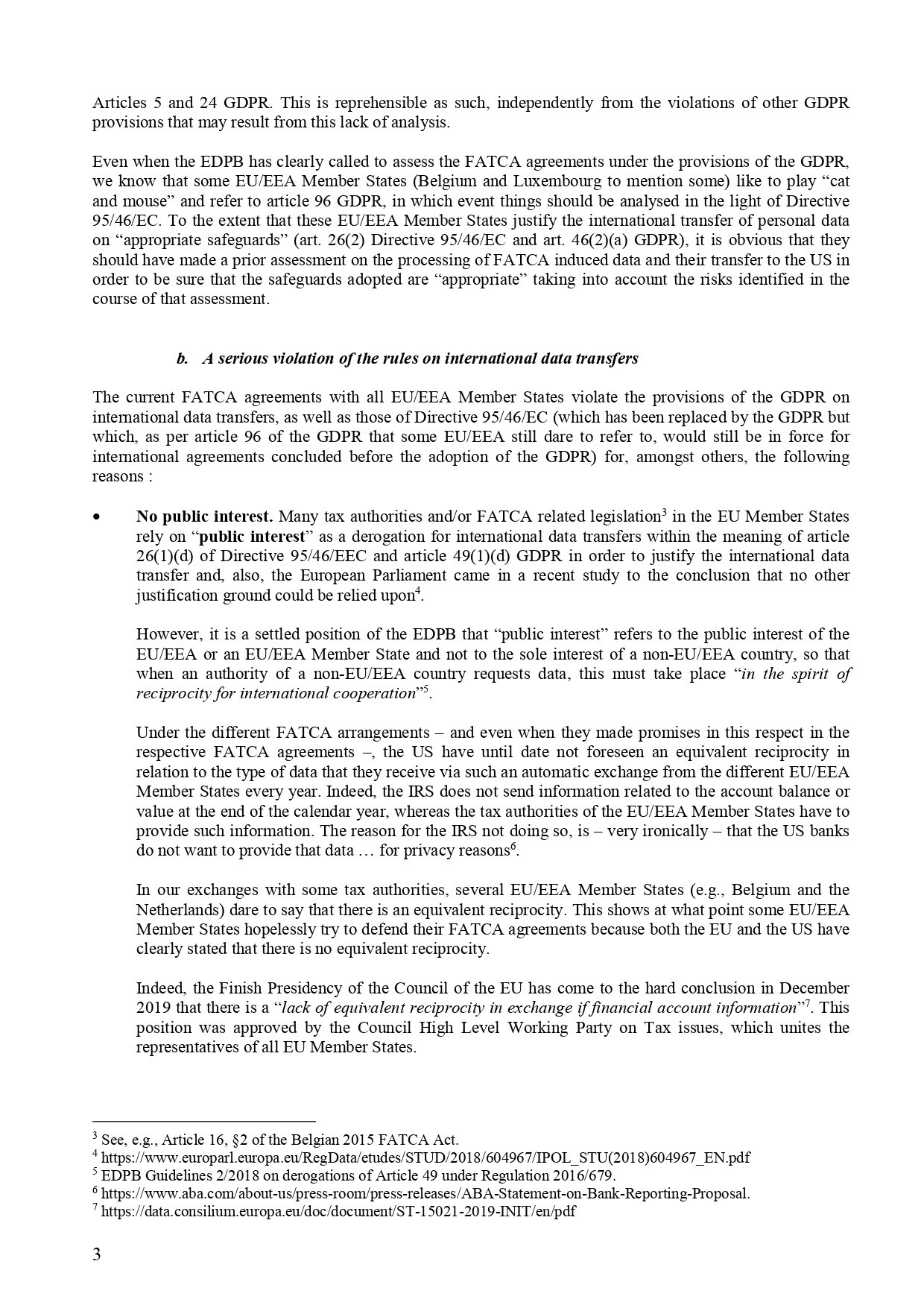us exit tax rules
US Exit Tax Taxation Under Section 877A As provided by the IRS. The IRS requires covered expatriates to prepare an exit tax calculation and certify prior years foreign income and accounts compliance.

Renouncing Us Citizenship Expat Tax Professionals
As complex as it may sound renunciation.
. Diplomatic or consular officer outside the United States. US citizens are automatically liable to expat laws surrounding taxation which includes exit tax. If you are a covered expatriate in the year you expatriate you are subject to income tax on the net unrealized gain in your property as if the property had been sold for its fair market value FMV on the day before your expatriation date mark-to-market tax.
But the rules are not limited to. Generally if you have a net worth in excess of 2 million the exit tax will apply to you. Currently net capital gains can be taxed as high as 238 including the net.
Why does exit tax exist. Deemed Disposition Exit Tax. Tax may be potentially avoided by limiting income and net worth through gifts.
Paying exit tax ensures your taxes are settled when you cease to be a US tax resident. In 2020 the maximum was 107600. There is no immediate tax upon expatriation with respect to eligible deferred compensation items.
Citizens and long-term residents must carefully plan for any proposed expatriation from the US. Citizenship or long-term residency triggers both the exit tax and the inheritance tax. It will be as though you had sold all of your assets and the gain generated was viewed as taxable income.
This determines the gain on your assets as well as the taxable amount of this above. For example if a covered expatriate owned US3 million of stock with a cost basis of US1 million he or she would be deemed to have a capital gain of US2 million. Exit taxes are relevant because some taxable income such as capital gains on home.
Green Card Exit Tax 8 Years. Status they are subject to the expatriation and exit tax rules. Citizenship if the US.
The Exit Tax Planning rules in the United States are complex. A critical requirement for the exit tax to apply is that an event must occur that terminates your citizenship or long-term resident status. The general proposition is that when a US.
Exit tax is calculated using the form 8854 which is the expatriation statement that is attached on your final dual status return. The current form of exit tax deems sold all assets held worldwide by the expatriate. You must do something to trigger the application of the exit tax.
For some that means being charged an exit tax on your income in your last year of citizenship or residency. The covered expatriates property for purposes of the exit tax is that property that would be taxable as part of the expatriates gross estate for federal estate tax purposes and is generally valued in the same manner as if he or she had died on the day before the expatriation date as a citizen or resident of the United States Notice 2009-85. This doesnt need to be eight consecutive years but must be over a span of the last 15 years.
Net capital gains in excess of US699000 for 2017 from the deemed sale of assets are included in income in the year of expatriation and an exit tax is calculated. The IRS Green Card Exit Tax 8 Years rules involving US. Citizen renounces citizenship and relinquishes their US.
The IRS adjusts this amount each year for inflation although the Trump tax reform in 2017 changed the inflation index to. The Exit Tax is computed as if you sold all your assets on the day before you expatriated and had to report the gain. Citizen may renounce his or her citizenship by signing an oath of renunciation or by voluntarily.
You are not subjected to the exit tax rules simply because you are a citizen or a long-term resident. The tax is determined by assuming that most property interests are marked to market and then taxed as if they were sold on the date immediately prior to expatriation. If you are covered then you will trigger the green card exit tax when you renounce your status.
Government decided in its infinite wisdom that he or she were renouncing citizenship for tax purposes. If you are a US citizen or long-term resident and retain that status indefinitely no exit tax will apply to you because no exit from the US tax system has taken place. Legal Permanent Residents is complex.
In that case you could be required to continue to file and pay taxes on your income for up to another 10 years. However it can also refer to those who have renounced a Green Card that they have held in at least eight years. Where they can make a formal renunciation of nationality before a US.
However US citizens are automatically liable to expat laws surrounding taxation and as a result are subject to exit tax rules. Instead exit tax is an attempt by the US government to consolidate your US tax affairs. Losing citizenship makes a.
Rather the payor must deduct and withhold from any taxable payment to the covered expatriate a tax equal to 30 percent of such taxable payment. What is the US. How is exit tax calculated.
Citizens can choose to give up citizenship or have it taken away from them. In some cases you can be taxed up to 30 of your total net worth. In the past the Exit Tax was imposed on an American giving up his or her US.
This tax is based on the inherent gain in dollar terms on ALL YOUR ASSETS including your home. Citizenship or decide to give up your Green Card you need to tie up loose ends with the IRS by ensuring youre all paid up on your US. Exit tax is not charged out of mean-spiritedness or as a final grab at your personal assets.
Through the FEIE US expats can exclude up to 108700 of their 2021 earnings from US income tax. Green Card Exit Tax 8 Years Tax Implications at Surrender. Simply letting your Green Card expire.
When you renounce your US. Terminate your citizenship or long-term resident status. The exit tax is essentially the application of US income tax on the portion of that phantom gain that exceeds US690000 as of 2015 as indexed for inflation.
Covered Expatriates are required to pay a deemed disposition or exit tax upon renouncing their citizenship. The US imposes an Exit Tax when you renounce your citizenship if you meet certain criteria. Under Section 349 a 5 of the Immigration and Nationality Act INA a US.
Citizens Green Card Holders may become subject to Exit tax when relinquishing their US.

Exit Tax For Renouncing U S Citizenship Or Green Card H R Block

When Might Renouncing Us Citizenship Make Sense From A Tax Point Of View

Renouncing Us Citizenship Expat Tax Professionals

Exit Tax In The Us Everything You Need To Know If You Re Moving

What Are The Us Exit Tax Requirements New 2022

Renouncing Us Citizenship Expat Tax Professionals

Accidental Americans Usaccidental Twitter

Renouncing Us Citizenship Expat Tax Professionals

Renouncing Us Citizenship Expat Tax Professionals

Covered Non Covered Expatriate H R Block

Green Card Holder Exit Tax 8 Year Abandonment Rule New

Beware Exit Tax Usa Giving Up Your Green Card Or Us Citizenship Can Be Costly

Exit Tax In The Us Everything You Need To Know If You Re Moving
:max_bytes(150000):strip_icc()/common-tax-mistakes-5bfc2d9346e0fb00265c4982.jpg)
:max_bytes(150000):strip_icc()/gettyimages_186178398-5bfc376cc9e77c0026337414.jpg)
